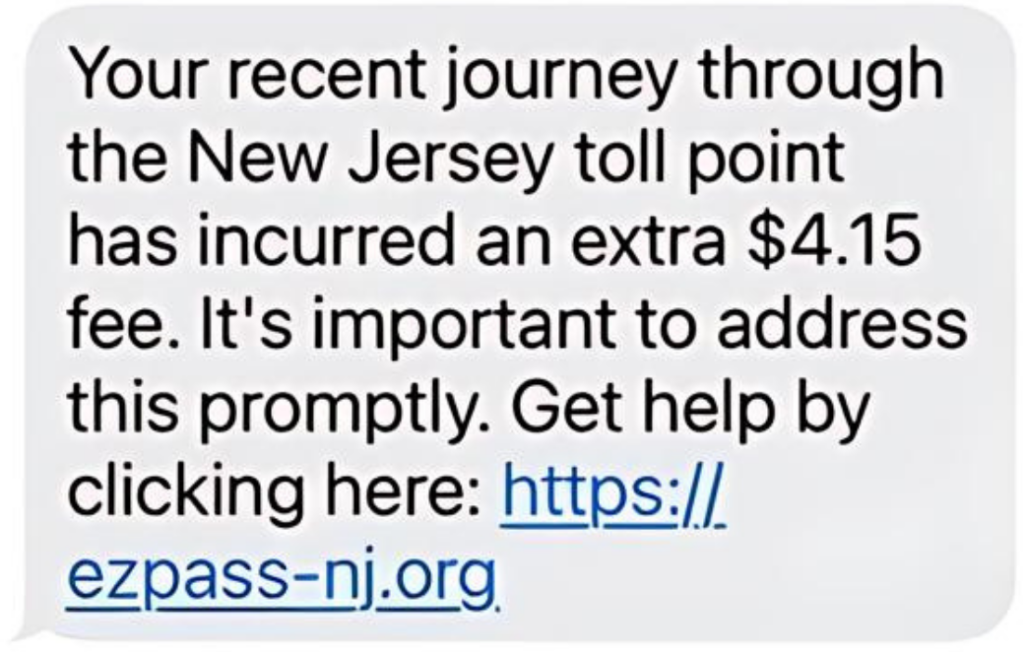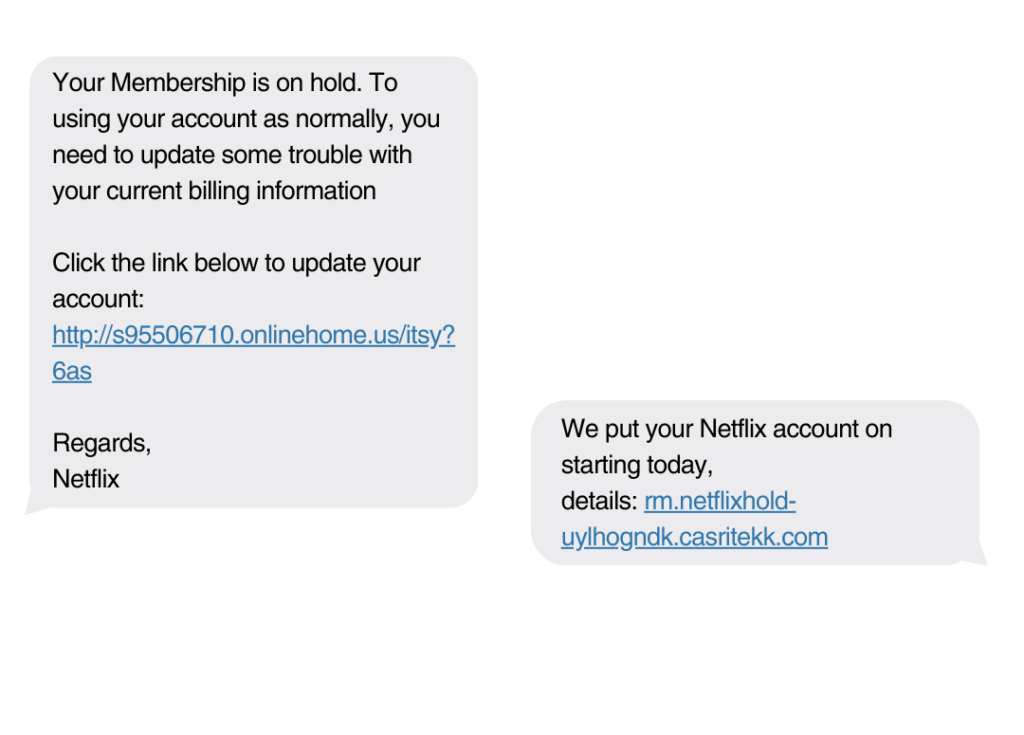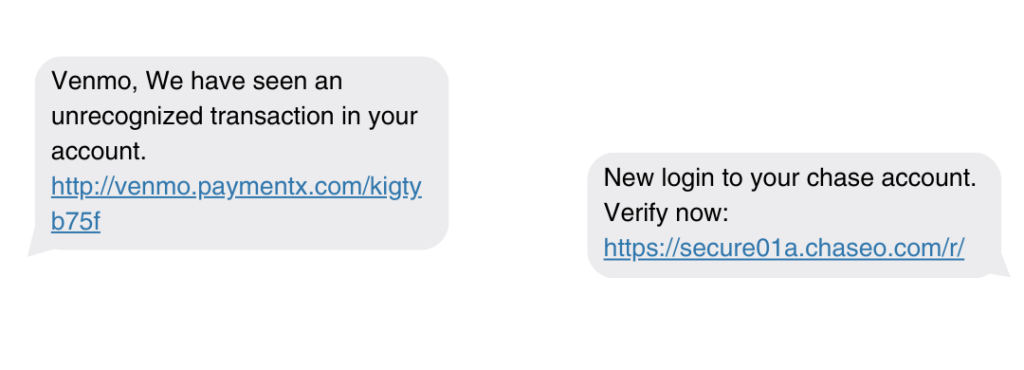Text scams are appealing because they’re quick and easy for scammers to execute. With just a few taps on their phone, scammers can target a large number of people and potentially trick them into falling for their tricks. These scams play on human emotions like fear, curiosity, or excitement to get people to act impulsively.
Keeping up-to-date on the latest tactics used in smishing scams and implementing verification practices can give you the upper hand against cybercriminals. By staying informed and being proactive in verifying the legitimacy of messages, you can outsmart these pesky scammers and protect yourself from falling victim to their schemes. Do any of these texts look familar?
This extremely recent scam claims to be The Electronic Toll Collection System. Individuals receive messages claiming they owe money are led to a scam website and advised to enter payment information to settle fees.

It is pretty often that a person uses popular streaming services such as Netflix or Spotify. Scammers bank on that to send messages such as these to individuals in hopes that they click on the link that may mimic the services official login, where users may enter personal information or even make a payment.

Cyber Criminals may send texts as a postal service alleging an unspecified issue hindering the delivery of a package, or delivery issues. To purportedly resolve these issues, the messages request payment or fees (often $1.99 or $3), along with the recipient updating their personal financial information on a fraudulent website.
Scammers will often pose as your bank or utility providers hoping to trick you into sharing personal details like your password, PIN or even social security numbers. These fraudulent messages often utilize tactics of urgency and fear to coerce recipients into taking immediate action.

Awards
Who doesn’t love winning prizes? Well, unless it’s a smishing prize. These deceptive texts often proclaim exciting news like, “Congratulations! You’ve won a prize!” accompanied by a link to claim a generous reward, such as a $500 gift card. If you haven’t participated in any contests or giveaways recently, it’s crucial not to click on the provided link. cyber criminals will craft websites that will ask for personal information or even download harmful software like malware onto your phone, potentially causing damage or rendering it inoperable.

The effects of a smishing attack can be devastating. This is why it is essential to stay aware and understand how to recognize text scams.
- Verify the phone number: Compare the phone number to those on the organization’s authentic website. If you are still unsure call support and ask if the message you are receiving is real.
- Authenticate links: Do not click on any links until you are absolutely sure that the message is genuine. Scammers often manipulate links to look similar to the organization they are impersonating. Check closely to ensure the domain’s spelling is correct and is the correct address.
- Check for spelling or grammar errors: Read through the text carefully to check for spelling or grammar mistakes. Scammers may purposefully include mistakes to filter out the more aware recipients. Those who miss the mistakes are more likely to fall for their scam.
- Trust your Instincts: If something seems off or too good to be true, chances are it is. Let’s be real, its better be safe then sorry.





